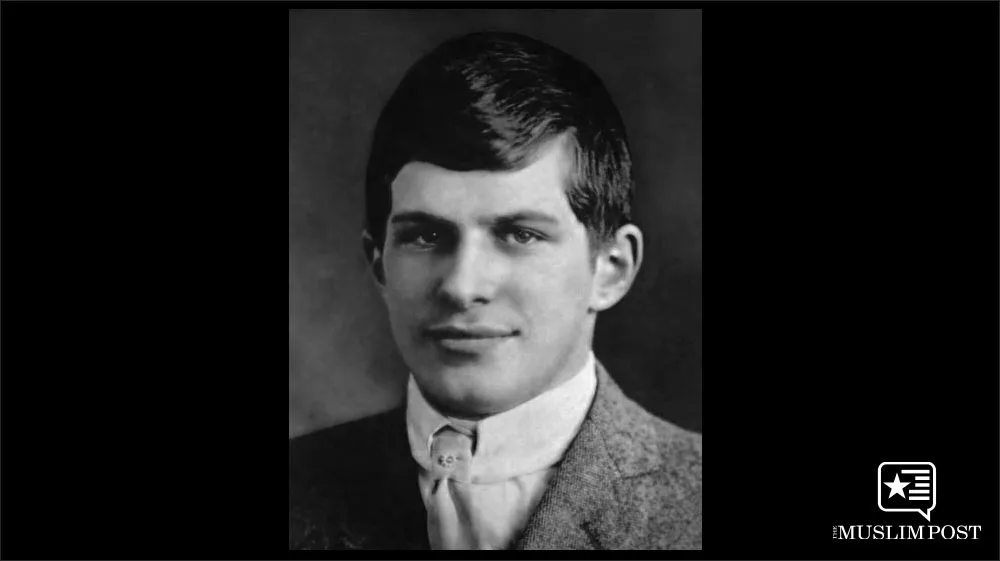William James Sidis, portrayed in his 1914 graduation photograph, obtained his degree from Harvard University at a mere 16 years old. Initially deemed eligible for admission at the tender age of 9, he was only welcomed to join at 11, as faculty believed he needed more time to develop, according to biographer Amy Wallace.
Long before the popular “Tiger Mother” concept emerged, Boris Sidis, William’s father, was advocating his unique child-rearing techniques. William James Sidis was revered by many as possibly the most brilliant individual to have ever lived. Born in Boston in 1898, he gained widespread attention in the early 20th century due to his extraordinary intellect.
His intelligence quotient (IQ) was estimated to be significantly higher than even Albert Einstein’s. His linguistic abilities were astounding – he mastered English, Latin, French, German, Russian, Hebrew, Turkish, and Armenian by the age of 6. At just 11 years old, he enrolled in Harvard University as one of its youngest students in history.
Despite his remarkable beginnings, Sidis chose to retreat from the limelight as an adult, shunning the public eye that had followed him since childhood. Amy Wallace, his biographer, revealed that he abhorred being thrust into the media spotlight.
Sidis’ parents, Boris and Sarah, were highly intelligent individuals themselves. Boris was a renowned psychologist and Sarah a doctor. They were determined to nurture their son’s exceptional talents through extensive educational resources and support.
Uniquely gifted among child prodigies, Sidis displayed a diverse range of abilities from a young age. He created his own language, composed French poetry, authored a novel, and even drafted a utopian constitution. Despite being accepted to Harvard at 9, he was asked to delay enrollment until he turned 11. Five years later, he graduated with honors.
Following his graduation, Sidis briefly worked as a mathematics professor before evading public attention by leading a reclusive life under various pseudonyms. Despite writing numerous books, many under false names, his works were not widely circulated. One of his books fetched a substantial sum at auction in London.
Sidis’ seclusion was interrupted in 1937 when The New Yorker sent a reporter to investigate his life. Feeling humiliated by the article that followed, Sidis decided to step out of hiding and sued the publication for defamation. He emerged victorious but tragically passed away from a brain hemorrhage in 1944 at the age of 46.
Despite his challenging upbringing and early fame, Wallace believes Sidis found contentment in adulthood, surrounded by those who cherished him. His transition from a troubled young prodigy to a happy man remains a testament to his resilience and inner strength.
William James Sidis’ legacy endures as a complex and enigmatic figure in history. His remarkable intellect and unconventional life path continue to fascinate scholars and enthusiasts alike. Despite his extraordinary abilities, Sidis faced many challenges throughout his life, including struggles with mental health issues, societal pressures, and the burden of high expectations placed upon him from a young age.
Throughout his life, Sidis sought to pursue his passions and interests on his own terms, often retreating from public view to focus on his studies and personal endeavors. Despite his reclusive nature, those who knew him personally often described him as a warm and kind-hearted individual, with a deep sense of empathy and compassion for others.
Sidis’ story serves as a cautionary tale about the complexities of giftedness and the importance of supporting individuals with exceptional abilities in a way that nurtures their well-being and holistic development. While his life was marked by moments of brilliance and achievement, it was also punctuated by periods of isolation and introspection.
Today, William James Sidis is remembered not only for his unparalleled intellect but also for his resilience in the face of adversity. His story invites us to reflect on the nature of genius, the impact of early fame and recognition, and the importance of finding balance between intellectual pursuits and personal fulfillment. In many ways, Sidis remains an enigma—a genius whose legacy continues to spark curiosity and contemplation among those who seek to understand the complexities of human potential.







